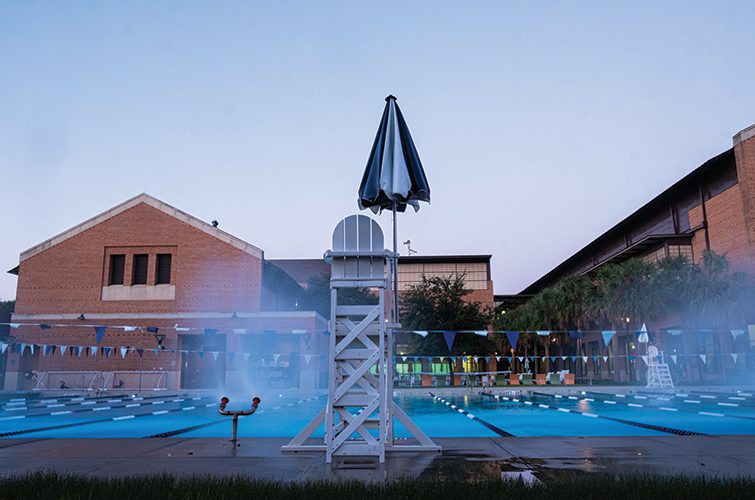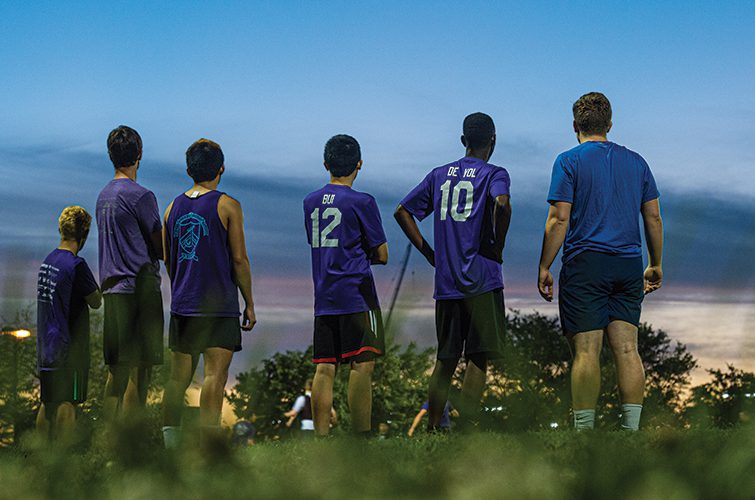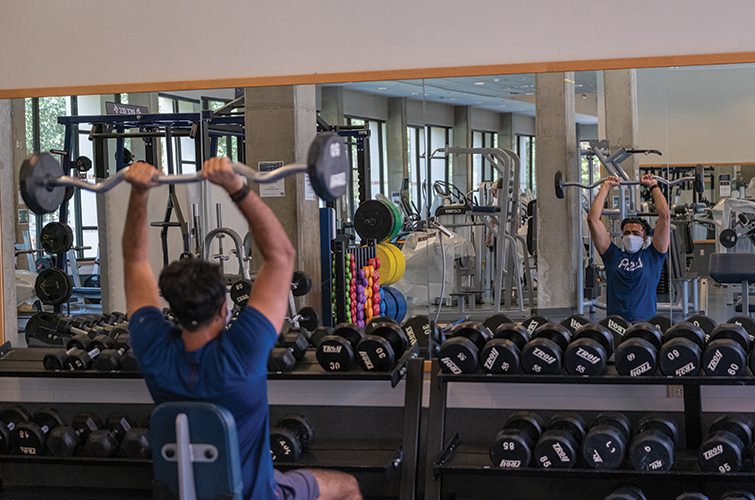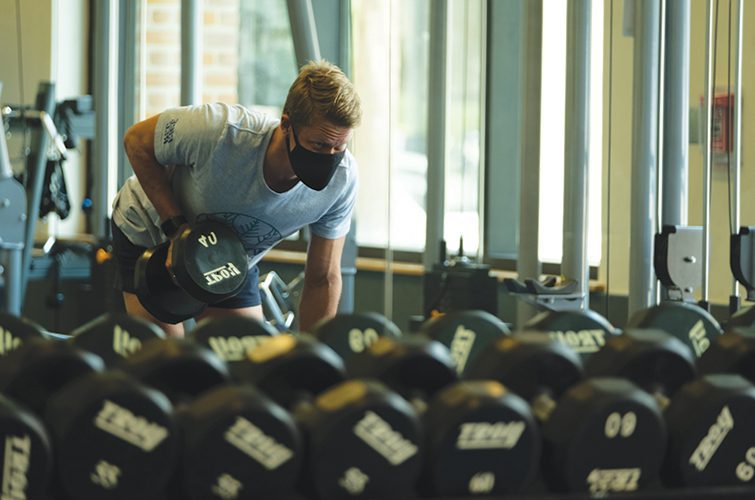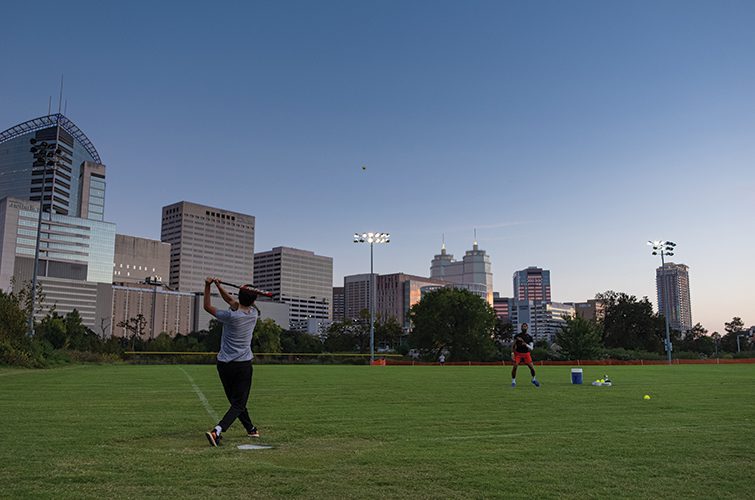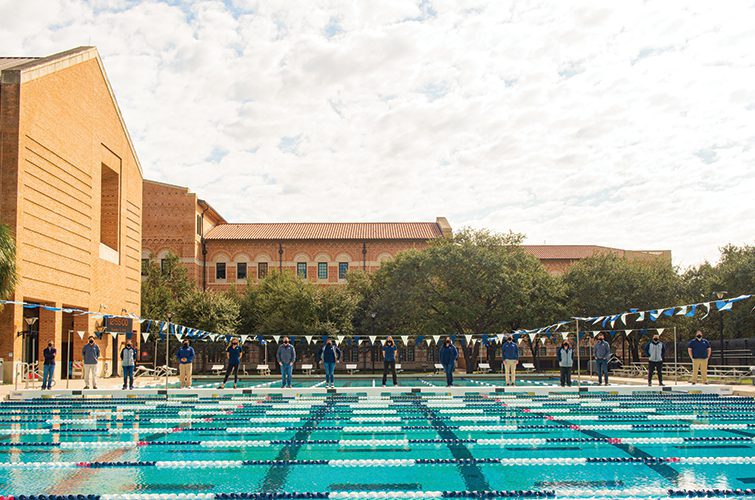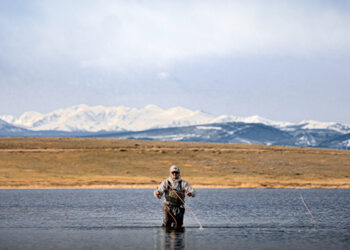Rice University in Houston, Texas, is saying “yes” in its efforts to encompass the entire campus population through diverse staff backgrounds, non-traditional programming and by serving outside of the rec center’s walls.
Will you be on the Crisis Management Team?”
That question was posed to Tina Villard in the spring of 2020 when COVID-19 shook the nation. As the senior associate athletic director and Recreation Center director at Rice University, Villard has been on the team before. Plus, she admitted she will say yes to just about anything. “Sometimes it gets me in trouble,” she noted.
And sometimes, it lands her in the perfect opportunity for growth — not just for herself, but for the campus as a whole.
Coming to Rice in August of 2000, Villard said yes to helping build the recreation department from the ground up. In fact, for the longest time, if you wanted to look up campus recreation in the directory at Rice University, you would simply find two words describing it: “the gym.” By pulling different areas of campus together and building a set of robust programs, the department was ready for its new building in 2009.
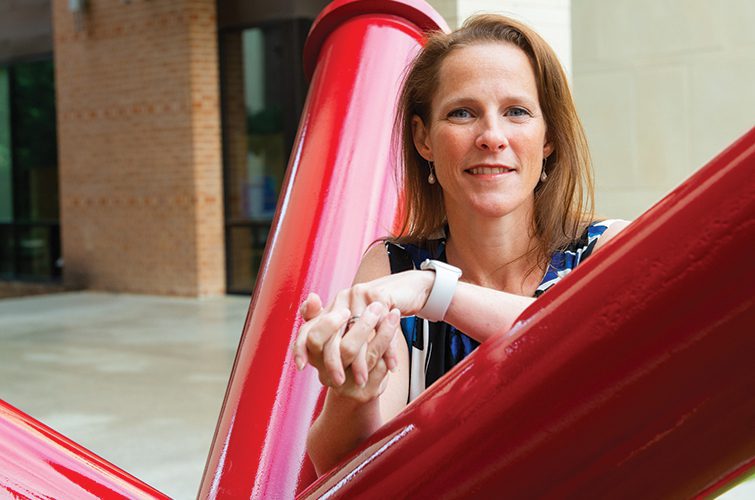
The two-story, 102,000-square-foot facility has won two awards, including the “Outstanding Sports Facilities” from NIRSA and a “Facilities of Merit” from Athletic Business Magazine. It boasts 9,000 square feet of dedicated space for cardio and weight equipment by Matrix Fitness, Marathon Fitness, Woodway, Core Health and Fitness, Interactive Fitness, Life Fitness, and Troy Barbell and Fitness. There are four multipurpose rooms, an outdoor rental center, an oasis-like outdoor natatorium, two gyms and more. Plus, the campus has another 46,000-square-foot recreation facility.
“We at Rice have evolved so much to be encompassing to our new campus, and we really had an opportunity to do that when we moved into the new building,” said Villard.
But that encompassment goes beyond just students. Campus recreation has also said yes to serving everyone on campus, from each grad student to the faculty and staff. “Our mission is to really offer programs and activities everyone can get involved with, so that everyone can stay healthy and think about their health,” she explained.
Suzanne Kemmer, a professor of linguistics, is one of those faculty members who has been impacted by Campus Recreation’s goal to encompass the whole campus in its mission.
She said for the first 20 years of her career at Rice University, she went to occasional classes at the old recreation center. After a realization that her muscles were too atrophied, she started going regularly about five years ago to rebuild her strength. And with the pandemic, she said the classes she attends — on average eight a week — have been a lifeline.
“During the pandemic I’ve needed extra movement to keep me sane and keep my body healthy, and to schedule my life during these strange times with reduced meetings and commitments and no trips to campus,” said Kemmer. “All together, I think these activities allowed me to avoid sliding into a depression due to my husband being in a foreign country for the duration of the pandemic.”
Rice, like every other campus, had to learn how to pivot quickly in the spring. Villard said since COVID-19, the biggest challenge has been how to run high-quality programs and provide services safely, both online and in-person. The team has adapted and pivoted in more ways than they can count.
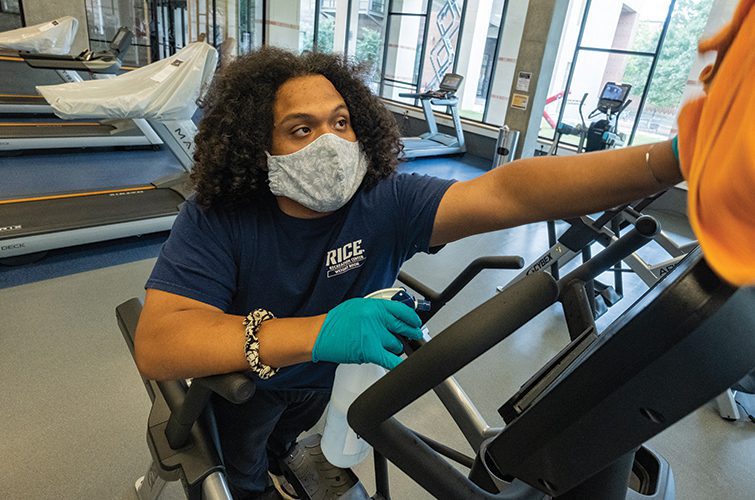
But like serving faculty, Villard and the campus recreation department looked to step outside the walls of the rec center even during such a crazy time. While Villard is the deputy chief of operations for the Crisis Management Team, a handful of her employees are volunteer contact tracers. By lending a hand to the greater campus community, Villard said it helps them build those connections.
COVID-19 isn’t the first crisis Recreation has stepped up for. After Hurricane Harvey hit in the fall of 2017, the department created its traveling ReCentering Services. “Departments from across campus can choose from a list of ad hoc sessions focused on stress relief and recovery,” said Villard. “These services are free and take place in the building where the departments are housed.”
Up until COVID, the program was in full swing, offering stretch breaks, mindfulness sessions and more. While it costs the department a lot, Villard said the benefits are worth it as it breaks down barriers for those who may never step into the rec center, keeps employee health up in times of stress, and allows Recreation to serve the campus better.
ReCentering Services is just one offering for the greater campus that moves beyond the four walls of the center. Elizabeth Slator, the associate director of programs, created (Re)Discover Your Wild Side with the goal to get working professionals to break away from the hustle and bustle of life, instead focusing on well-being and nature.
Two offerings fall under this program. The Wellness Adventure Program preps participants for six weeks to experience an adventure vacation at places like the Grand Canyon National Park, California’s Lost Coast Trail, portions of the Appalachian Trail, etc. “It’s a comprehensive wellness program ultimately designed for adults who have a spirit of adventure within them but who have let their lives shrink a bit,” said Slator.
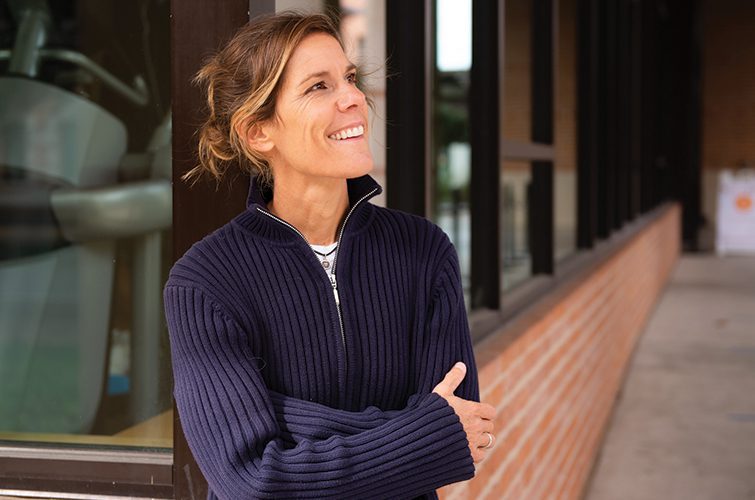
The Wilderness Retreat is a mindfulness retreat at Paint Rock Farm, located in the Appalachian Mountains of western North Carolina. A six-week mindfulness course precedes the retreat. Once there, attendees can hike, reflect, eat well and ultimately, be renewed.
Recreation runs both programs at cost to have a lower barrier to entry. But since its inception, there has been growth and great feedback. “Surveys of both reveal deep satisfaction with the experience, and notable changes in holistic health outcomes — including increased physical activity, reduced stress and anxiety, deeper understanding of mindfulness and a commitment to practice regular meditation, greater sense of connection/social support, and improved overall confidence,” said Slator.
(Re)Discovering Your Wild Side is one of the best examples of what Recreation at Rice University hopes to do for the faculty and staff. “It’s opening doors to things maybe people didn’t think about doing until they get more settled in their 40s,” shared Villard.
Beyond non-traditional offerings, another reason why they’ve been so successful in reaching more than just undergrads is the idea of building a connection between instructors and participants. Kemmer shared she’s been doing a specialty Tai Chi class twice a week for three years. “The instructor is excellent and can make the online class almost as good as an in-person class,” she said. “He gives us a few minutes for feedback at the end of each class which is immensely helpful in bridging the spatial gap. I find that despite doing this Tai Chi class for a long time, I always learn something new. The instructor treats the class as an ongoing learning experience and teaches in a way that draws in new participants as well as keeping it fresh for us long-time participants. I wish it were every day.”
She said similar things about the instructors for the other classes she attends — Holistic Movement, Strength and Mobility yoga, and Mat Pilates — both online and in-person. “I can’t imagine what kind of shape I’d be in without these classes,” said Kemmer. “I am excited to do more of these classes at Rice. I’ll try any new Mind/Body courses they offer, online or in person. The costs can add up, but every dollar so far has paid dividends in health, so I consider this an investment.”
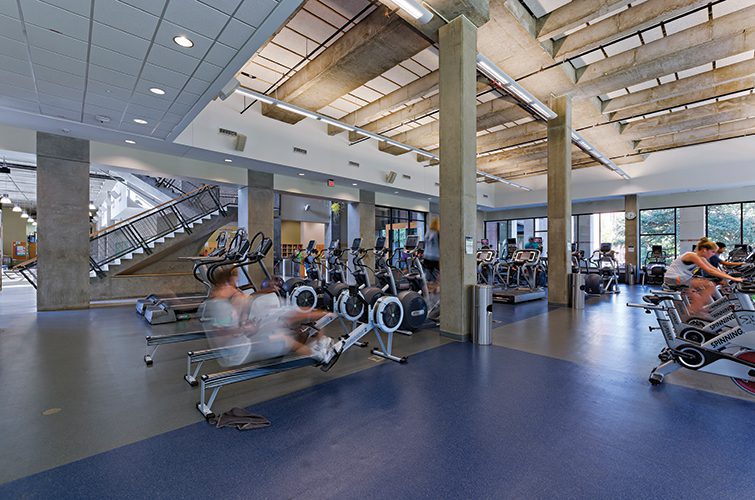
Programs with the ability to serve faculty members like Kemmer haven’t come about because Recreation at Rice says no to opportunities or serving beyond the student population. It’s a department that says “yes” and “let’s try it” to new offerings and ideas that encompass the entirety of campus, something that started with Villard.
But it takes a stellar team to turn that “yes” into something impactful. Villard said they are a group of experts with diverse backgrounds who are loyal, work hard and love a good challenge.
So, no matter what is thrown at them — a pandemic or a hurricane — Recreation will continue to say “yes” in order to encompass the entire campus in its services.
“The secret to our success lies both in our willingness to say ‘yes’ to new opportunities and to see our setbacks as opportunities for growth,” said Villard. “The more you listen to and respect the evolving needs of your community, the better able you will be to serve it.”
Images by Jeff Fitlow



